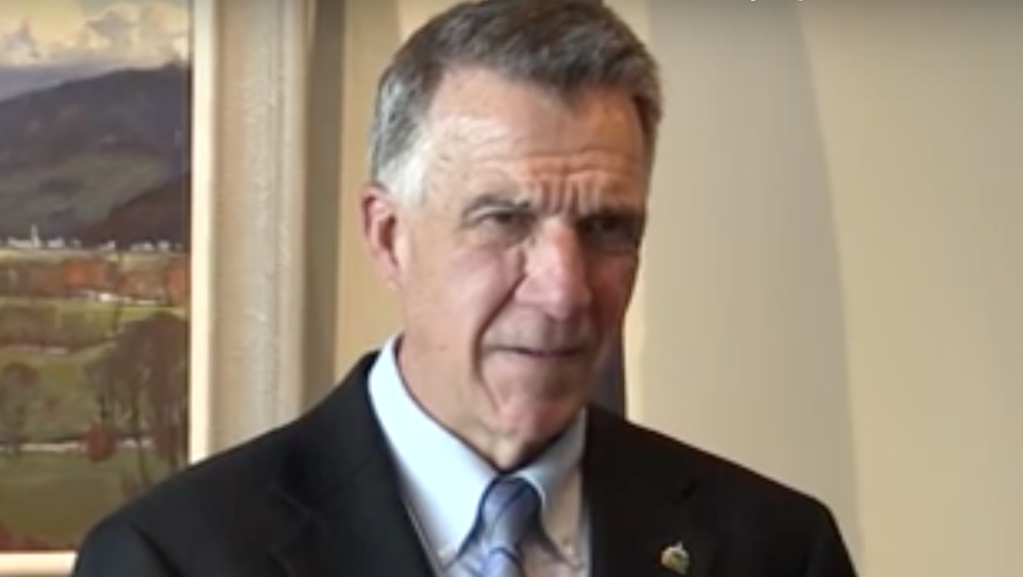
When the leader of your party describes your candidate recruitment effort as “disappointing,” it’s a sign that things have gone off the rails. So said VTGOP Chair Paul Dame to Seven Days’ Kevin McCallum, and then added “It’s one of the smallest recruitment classes that we’ve had in the last 10 years.”
Can confirm. I spent a few hours poring over the Secretary of State’s list of candidates who have filed for major party primaries. There may be a few late adds; the deadline was last Thursday, and as of Monday morning the Elections Office was still checking petitions. But what we’ve got so far, by my count, is a total of 69 Republican candidates for House. Which sounds a little bit respectable considering they’ve only got 37 seats right now.
Except for this: At least 30 of those candidates have no shot at winning. There are a few Republican primaries where someone’s gotta lose, a few repeat candidates who have been uncompetitive in the past, and a lot of Republican candidates in deep-blue districts. In other words, the VTGOP has no better than the longest of longshot chances at eliminating the Democratic/Progressive supermajority in the House. They’d have to run the table in competitive districts and hold all their current seats.
On the Senate side the Republicans have 25 candidates, but I count 14 who are not competitive. The R’s do have a shot at ending the Senate supermajority thanks to some key Democratic departures, but that’s all it is: a shot.
So what happened to Gov. Phil Scott’s “pledge” (McCallum’s word) to recruit moderate Republican candidates? Either it was a failure, or it never happened at all.
Myself, I doubt there was ever anything like a “pledge.” Here’s where I believe this talk got started. At one of Scott’s March press conferences, I pointed out that while he has absented himself from party affairs, the weakness of the VTGOP directly harms his ability to govern. Scott put the blame on He Who Shall Not Be Named, a.k.a. the Orange Turd, and renewed his pitch for fiscal centrists to run for the Legislature. Vermont Public’s Bob Kinzel followed up by asking if Scott would get more involved in GOP affairs. Scott said he “may be active” in recruiting centrist candidates.
May be active.
Was he?
If he was, he had no discernible effect. The Republican ticket is loaded with the customary Trumpers and QAnon types. County committees that have been taken over by the far right, such as Addison, Windsor and Windham, have put up bunches of candidates who have no chance of being competitive, let alone winning. If there are any newcomers with the Phil Scott stamp of approval, I haven’t identified them.
This puts the Republicans in position to squander a real opportunity. The property tax issue, which Scott has managed to pin on the Dems even though he signed the bill that led to this year’s trouble, could spark a rise in the anti-tax vote. It hasn’t yet, but the possibility exists. Also, the Dems are suffering a considerable number of departures from their ranks. A total of 18 House Democrats are not seeking re-election including some in purple districts. That gives the VDP quite a bit of territory to defend.
(On the other hand, nine House Republicans are stepping away, which is a much higher percentage loss than 18 Dems.)
The Republicans would have no shot at ending the Senate supermajority except for the high-profile departures of moderate Sens. Jane Kitchel and Bobby Starr and the late Dick Mazza. (The seats of Dick McCormack, Brian Campion and the late Dick Sears should be safe Democratic territory.) The Republicans would need a net gain of four seats to reduce the supermajority to plain ol’ majority. They have a couple other possibilities besides the above three; Rep. Chris Mattos is challenging first-term Sen. Irene Wrenner in the Chittenden North district, and Orange County’s Sen. Mark MacDonald is another two years older and may be vulnerable.
But the Republicans would need to (1) hold on to all their seats and (2) take four of the five potential swing districts. (Or lose a Republican seat and sweep all five of the swingers.) It’s a daunting piece of math. And while the Vermont Democratic Party should have the resources to run a stout coordinated campaign, the VTGOP has no financial or organizational muscle to assist legislative candidates. They’ll be on their own. And if push comes to shove, the Dems can push resources into a handful of races and boost their chances of retaining supermajorities.
So in spite of some promising headwinds, the governor is likely to find himself back in the same situation come January: Facing potential veto overrides in both houses, with the extra added bonus of a Democratic Senate majority stripped of Kitchel, Mazza and Starr, the veteran centrists most likely to break with their caucus. It used to be that Scott could look around the Senate and see a bunch of familiar faces from his years as a Washington County senator, and count on a measure of goodwill from his past relationships. The new Senate will feature only six senators who served alongside Scott.
It’s not looking good for the governor. He could have tried to do something about it. It might have worked, or it might not. But what he apparently chose to do was nothing. Reminds of the old saying about the definition of insanity.

“See, I found your problem right off. You expect republicans to actually getting something constructive done. I mean what has Governor Scott done other then sign some bills while vetoing how many others for the flimsyest excuse?” Said somebody somewhere.